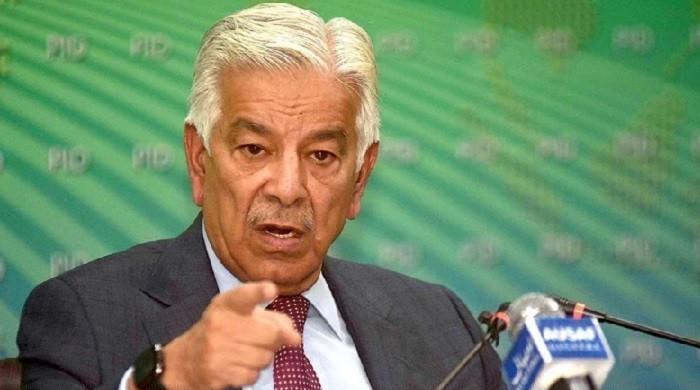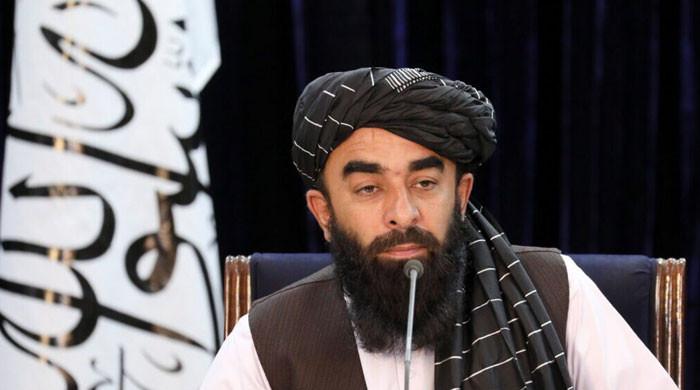Does Tania Aidrus’s attempt to wear two hats create a conflict of interest?
Objectives of DPF appear to be raising funding from investors through grants, facilitating procurement, and entering into legal arrangements to advance the purpose of the Initiative
June 25, 2020

Tania Aidrus, special assistant to the prime minister, would be feeling the spotlight.
The ex-Google executive, brought in to spearhead the Digital Pakistan Initiative, finds herself in the midst of withering allegations of conflict of interest and suspected collusive activities.
The Initiative, announced amidst much beating of drums, unveiled ambitious plans of the office of the prime minister, aimed at improving digital infrastructure, promoting tech entrepreneurship as well as providing internet access and connectivity for all.
Ms. Aidrus was appointed as special assistant to the prime minister (SAPM), a constitutional post, pursuant to which the government threw its weight and its machinery behind her in the elusive goal of digitizing Pakistan.
All well and good, except that social media discovered that a not for profit company incorporated under Section 42 of the Companies Act, 2017, by the name of Digital Pakistan Foundation (DPF) was incorporated prior to Ms. Aidrus taking oath as a SAPM. She was appointed as the chairperson of the DPF, along with Jahangir Tareen (who subsequently resigned amidst the sugar inquiry scandal) as the initial promoters/directors.
The objectives of DPF appear to be raising funding from investors/external donors through grants, facilitating procurement and entering into legal arrangements to advance the purpose of the Initiative.
The DPF’s incorporation appears to be based on expediency. It is a Special Purpose Vehicle, incorporated to deal and/or negotiate directly with donors and investors and thus escape the Kafkaesque bureaucracy of state institutions. It appears to be a forward-looking initiative, but the path to hell is paved with good intentions.
The controversy is this; does Aidrus’s attempt to wear two hats i.e chairperson of DPF and SAPM, create a conflict of interest? Let’s try to unpack this from a legal perspective.
At the very outset, her appointment as an SAPM is pursuant to the Rules of Business 1973. The prime minister, with the consultation of the cabinet, determines the status and functions of SAPM. In fact, the Rules of Business explicitly state that no terms and conditions of service of SAPMs shall be determined without consultation with the cabinet.
The first question to ponder is whether the incorporation of the DPF and her joining as chairperson was approved or subsequently ratified by the cabinet?
This is significant because as a SAPM, her terms and conditions of service are dictated by the federal government, constituting the prime minister and the cabinet. It may not matter that DPF is not an entity under the control of, or performing functions related to the federal government.
It may also not be of any consequence that Aidrus does not own any shareholding in DPF, cannot claim dividends or draw a salary. Her presence in DPF unequivocally demonstrates a clear footprint of the federal government. If her appointment as the chairperson of DPF was not approved or ratified by the cabinet, a legal challenge could be forthcoming on non-compliance with the Rules of Business, which the superior courts have held to have constitutional pedigree.
This could be the reason why her appointment as chairman of the Company preceded her role as an SAPM, a move ostensibly designed to escape the strictures of the Rules of Business.
Some latitude has to be given to the fact that the DPF is currently in its infancy. After the resignations of Tareen and his lawyer (also a director in DPF), a fresh Board of Directors needs to be reconstituted in the Company. Does an automatic conflict of interest arise in Ms. Aidrus’s assuming both offices? Let’s consider the legal position on this as well.
The Supreme Court has provided clarity in what constitutes a conflict of interest in its recent judgment rendered in Khawaja Asif vs Usman Dar (2018 SCMR 2128). Such a conflict is a “real or seeming incompatibility between one’s private interest and one’s public or fiduciary duty”. It may include preferential treatment by using one’s privileges or confidential information to benefit some else or own interests. It may be pertinent to mention that in the said judgment; the Supreme Court was categorical that such a claim needs to be substantiated with proof of either unjust enrichment or material benefits. Whilst the Supreme Court passed an observation that Mr. Khawaja Asif's employment with a foreign entity was “highly inappropriate” as a parliamentarian, no conflict of interest was made out directly.
Ms. Aidrus may take solace in the Supreme Court judgment, but the dual positions of SAPM and DPF Chairman shall require her to constantly walk on eggshells. It is not sufficient to say that she is merely the titular figurehead in DPF and the actual approvals and policy decisions pertaining to the Initiative shall be handled by the State. For every investor that she meets, every grant that she recommends to the Economic Affairs Division, and every Memorandum of Understanding inked by the DPF, she will face scrutiny on account of the duality of her roles. This is a natural consequence of encroachment of public positions in private domains in the absence of any clear legislation on such roles.
Consider also that Aidrus’s presence as chairperson of DPF may paradoxically create the very legal hurdles that it was designed to avoid in the first place. If the DPF, through Aidrus and other directors, recommend a certain investor to the relevant state department for initiating contractual formalities, the investor’s competitor may seek to challenge such recommendation under the laws by filing complaints before appropriate forums. Consider that the Competition Commission of Pakistan as a regulator has the authority to scrutinize any arrangement that has the object of preventing, restricting or reducing competition, which includes collusive tendering.
Any investor/competitor overlooked by the DPF can take aim at Aidrus’s position and use it as an excuse to be litigious. Even if such claims have no merit, they may create bottlenecks in terms of stay orders, freezing awards of any contracts till the said claim is adjudicated.
The common denominator in this would be Aidrus’s role as chairperson. Her position, ostensibly created to act as a conduit between the donor and the state, would be cannibalized by the same legal logjams that it seeks to avoid.
There is something to add to all this from a constitutional perspective. In the last decade or so, writs of Quo Warranto, aimed to challenge public appointments before superior Courts have thrived. This emanated in some ways from the federal government employing cronyism and nepotism in handpicking their personal favorites to significant public and regulatory positions, without utilizing any objectively demonstrable criteria; such as advertising a post, holding interviews or appointing individuals unsuitably qualified for the job.
This led to these appointments being challenged at both the High Court and the Supreme Court level, with the courts establishing the criteria for such appointments through their judgments. The superior courts liberally welcomed such petitions relaxing issues of locus standi; unlike other actions against the state, you did not need to be personally affected by the public appointment to file a petition. You could simply file a petition as a concerned citizen.
The federal government was also inactive in introducing legislation, which would have standardized the criteria for such appointments and thus be more fortified against legal challenges.
A result of all this is that petitions of Quo Warranto have been weaponized by opposing politicians and/or their proxies to challenge public officials and appointments to regulatory posts.
The Khawaja Asif case cited above for example was initiated by PTI’s Usman Dar. There is nothing stopping a future litigant in filing a similar petition against Ms. Aidrus, challenging her dual appointments citing inter-alia conflicts of interest. This is notwithstanding the fact that her appointment as DPF chairperson is not a public post, yet such legal challenges would be inextricably linked to her position as an SAPM.
The above is a consequence of not legislating effectively.
On the face of it, there is no bar on Aidrus to wear two hats as chairman DPF and SAPM, apart from compliance with the Rules of Business. Yet, it is the absence of this very legislation that creates uncertainty and a distinct lack of transparency, which is then subject to adversarial court proceedings, as the judiciary fills in the gap by either nullifying such appointments or directing the government to legislate on the same.
Moving ahead, there appears to be two options on the table. Aidrus may resign from her position as DPF chairman and put this controversy to rest. Alternatively, the government may assume direct ownership of DPF through a complete restructuring of the Board, thus alleviating Aidrus’s current state of purgatory.
This may allow it the transparency to deal and negotiate with third parties in its own right, which may go a long way in allaying objections. In the long run, the federal government may actually invest time in legislating on such issues in order to permanently put them to bed. That may itself be asking too much at this stage, but this is the only conceivable long-term solution.
The State should do well to heed John Milton’s advice on “Paradise Lost” on the subject of choosing difficult but rewarding paths:
“Long is the way and hard,
That out of hell,
Leads up to Light”
The author is a barrister in Lahore. He tweets at @RezaAli1980











